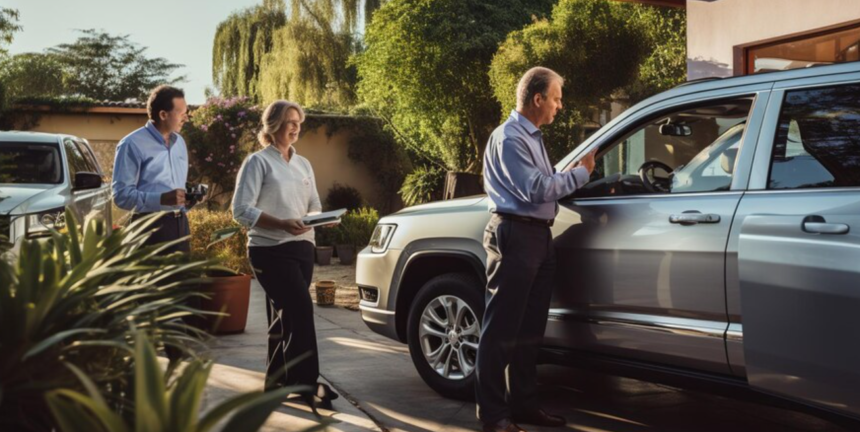In the ever-evolving landscape of the automotive market, finding the perfect used SUV can feel like navigating a maze. With numerous makes, models, and years to consider, the process can be overwhelming. However, armed with the right knowledge and strategy, discovering a quality used SUV that fits your needs and budget is entirely feasible. This comprehensive guide aims to streamline your search process, providing essential tips and insights to ensure a successful purchase.
Understanding Your Needs
Before delving into the specifics of various used SUVs models, it’s crucial to assess your individual requirements. Consider factors such as:
- Purpose: Determine the primary use of the SUV. Will it be used for daily commuting, family adventures, off-road excursions, or a combination of these?
- Size and Seating Capacity: Evaluate how many passengers you need to accommodate regularly and whether you require additional cargo space for luggage, sports equipment, or pets.
- Fuel Efficiency: Assess your driving habits and determine the level of fuel efficiency that aligns with your expectations and budget.
- Features and Amenities: Identify must-have features such as advanced safety technologies, entertainment systems, comfort options, and towing capabilities.
- Budget: Establish a realistic budget range, considering not only the initial purchase price but also ongoing maintenance, insurance, and fuel costs.
By clarifying your needs and priorities upfront, you’ll narrow down your options and focus on SUVs that best suit your lifestyle and preferences.
Researching Reliable Brands and Models
With a myriad of SUVs flooding the market, conducting thorough research is paramount. Start by exploring reputable brands known for producing reliable and durable vehicles. While popular brands like Toyota, Honda, Ford, and Subaru often top the charts for dependability, don’t overlook lesser-known manufacturers that offer competitive features at a lower price point.
Once you’ve identified trusted brands, delve into specific models that align with your requirements. Pay attention to factors such as:
- Reliability Ratings: Consult consumer reports and reliability surveys to gauge the long-term dependability of different SUV models.
- Safety Features: Prioritize models equipped with advanced safety features such as automatic emergency braking, lane-keeping assist, adaptive cruise control, and blind-spot monitoring.
- Fuel Economy: Compare the fuel efficiency ratings of various SUVs to find a balance between performance and affordability.
- Resale Value: Consider the depreciation rate and resale value of different models, as this can significantly impact your overall ownership costs.
- Reviews and Testimonials: Read expert reviews and real-world testimonials from owners to gain insights into the driving experience, comfort, and overall satisfaction with specific SUVs.
By conducting comprehensive research, you’ll narrow down your options to a select few models that meet your criteria for quality, reliability, and value.
Evaluating Vehicle History and Condition
When purchasing a used SUV, scrutinizing the vehicle’s history and condition is paramount to avoid potential pitfalls. Here are essential steps to follow during the evaluation process:
- Vehicle History Report: Obtain a comprehensive vehicle history report using the vehicle identification number (VIN). Look for any red flags such as accidents, flood damage, odometer discrepancies, or title issues.
- Mechanical Inspection: Hire a qualified mechanic to conduct a thorough inspection of the SUV’s mechanical components, including the engine, transmission, suspension, brakes, and exhaust system. Address any underlying issues before finalizing the purchase.
- Exterior and Interior Examination: Inspect the exterior and interior of the SUV for signs of wear and damage. Pay attention to paint condition, rust, dents, scratches, upholstery quality, and functionality of features such as power windows, doors, and infotainment systems.
- Test Drive: Take the SUV for a test drive to assess its performance, handling, and overall comfort. Test features such as acceleration, braking, steering responsiveness, noise levels, and visibility from different vantage points.
- Certified Pre-Owned (CPO) Options: Consider purchasing a certified pre-owned SUV from a reputable dealership, as these vehicles undergo rigorous inspections and come with extended warranties for added peace of mind.
By conducting a comprehensive evaluation of the vehicle’s history and condition, you’ll minimize the risk of purchasing a used SUV with hidden issues or deficiencies.
Exploring Purchase Options and Negotiating Terms
Once you’ve identified a quality used SUV that meets your criteria, it’s time to explore purchase options and negotiate terms that align with your budget and preferences. Consider the following strategies:
- Private Sellers vs. Dealerships: Evaluate the pros and cons of purchasing from private sellers versus authorized dealerships. While private sellers may offer lower prices, dealerships often provide additional benefits such as warranties, financing options, and trade-in opportunities.
- Price Comparison: Research the market value of similar SUVs in your area to ensure you’re paying a fair price. Use online pricing tools and negotiate based on factual data rather than emotions.
- Financing and Payment Options: Explore financing options through banks, credit unions, or dealership financing departments. Compare interest rates, loan terms, and down payment requirements to secure the most favorable financing arrangement.
- Negotiation Tactics: Be prepared to negotiate the purchase price, as well as additional terms such as warranty coverage, maintenance packages, and accessories. Approach negotiations with confidence, but remain flexible and willing to compromise to reach a mutually beneficial agreement.
- Finalizing the Deal: Review all documentation carefully before signing any contracts or agreements. Ensure that all terms, warranties, and conditions are clearly outlined and understood. If purchasing from a private seller, arrange for a secure payment method and obtain a signed bill of sale.
By exploring various purchase options and negotiating terms effectively, you’ll maximize your chances of securing a quality used SUV at a competitive price.
Conclusion
Finding the perfect used SUV requires patience, diligence, and informed decision-making. By understanding your needs, researching reliable brands and models, evaluating vehicle history and condition, exploring purchase options, and negotiating terms effectively, you’ll navigate the process with confidence and ensure a successful purchase. Whether you’re seeking a versatile family vehicle, an adventurous off-road companion, or a fuel-efficient daily driver, this comprehensive guide equips you with the tools and knowledge to find the ideal used SUV that fits your lifestyle and budget.



